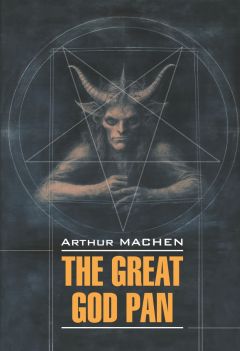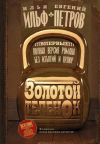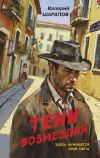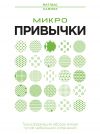Текст книги "The Great God Pan / Великий бог Пан"

Автор книги: Артур Мейчен
Жанр: Иностранные языки, Наука и Образование
сообщить о неприемлемом содержимом
Текущая страница: 3 (всего у книги 17 страниц) [доступный отрывок для чтения: 6 страниц]
Clarke groaned; there could be no shadow of doubt.
'Now, don't you agree with me,' said Villiers, 'that in the story I have told you tonight, and in the part this woman plays in it, there are some very strange points?'
'Yes, Villiers,' Clarke muttered, 'it is a strange story indeed; a strange story indeed. You must give me time to think it over; I may be able to help you or I may not. Must you be going now? Well, good night, Villiers, good night. Come and see me in the course of a week.'
V. The Letter of Advice
'Do you know, Austin,' said Villiers, as the two friends were pacing sedately along Piccadilly one pleasant morning in May, 'do you know I am convinced that what you told me about Paul Street and the Herberts is a mere episode in an extraordinary history? I may as well confess to you that when I asked you about Herbert a few months ago I had just seen him.'
'You had seen him? Where?'
'He begged of me in the street one night. He was in the most pitiable plight, but I recognized the man, and I got him to tell me his history, or at least the outline of it. In brief, it amounted to this-he had been ruined by his wife.'
'In what manner?'
'He would not tell me; he would only say that she had destroyed him, body and soul. The man is dead now.'
'And what has become of his wife?'
'Ah, that's what I should like to know, and I mean to find her sooner or later. I know a man named Clarke, a dry fellow, in fact a man of business, but shrewd enough. You understand my meaning; not shrewd in the mere business sense of the word, but a man who really knows something about men and life. Well, I laid the case before him, and he was evidently impressed. He said it needed consideration, and asked me to come again in the course of a week. A few days later I received this extraordinary letter.'
Austin took the envelope, drew out the letter, and read it curiously. It ran as follows:-
'My dear Villiers, – I have thought over the matter on which you consulted me the other night, and my advice to you is this. Throw the portrait into the fire, blot out the story from your mind. Never give it another thought, Villiers, or you will be sorry. You will think, no doubt, that I am in possession of some secret information, and to a certain extent that is the case. But I only know a little; I am like a traveller who has peered over an abyss, and has drawn back in terror. What I know is strange enough and horrible enough, but beyond my knowledge there are depths and horrors more frightful still, more incredible than any tale told of winter nights about the fire. I have resolved, and nothing shall shake that resolve, to explore no whit farther, and if you value your happiness you will make the same determination.
'Come and see me by all means; but we will talk on more cheerful topics than this.'
Austin folded the letter methodically, and returned it to Villiers.
'It is certainly an extraordinary letter,' he said, 'what does he mean by the portrait?'
'Ah! I forgot to tell you I have been to Paul Street and have made a discovery.'
Villiers told his story as he had told it to Clarke, and Austin listened in silence. He seemed puzzled.
'How very curious that you should experience such an unpleasant sensation in that room!' he said at length. 'I hardly gather that it was a mere matter of the imagination; a feeling of repulsion, in short.'
'No, it was more physical than mental. It was as if I were inhaling at every breath some deadly fume, which seemed to penetrate to every nerve and bone and sinew of my body. I felt racked from head to foot, my eyes began to grow dim; it was like the entrance of death.'
'Yes, yes, very strange certainly. You see, your friend confesses that there is some very black story connected with this woman. Did you notice any particular emotion in him when you were telling your tale?'
'Yes, I did. He became very faint, but he assured me that it was a mere passing attack to which he was subject.'
'Did you believe him?'
'I did at the time, but I don't now. He heard what I had to say with a good deal of indifference, till I showed him the portrait. It was then that he was seized with the attack of which I spoke. He looked ghastly, I assure you.'
'Then he must have seen the woman before. But there might be another explanation; it might have been the name, and not the face, which was familiar to him. What do you think?'
'I couldn't say. To the best of my belief it was after turning the portrait in his hands that he nearly dropped from the chair. The name, you know, was written on the back.'
'Quite so. After all, it is impossible to come to any resolution in a case like this. I hate melodrama, and nothing strikes me as more commonplace and tedious than the ordinary ghost story of commerce; but really, Villiers, it looks as if there were something very queer at the bottom of all this.'
The two men had, without noticing it, turned up Ashley Street, leading northward from Piccadilly. It was a long street, and rather a gloomy one, but here and there a brighter taste had illuminated the dark houses with flowers, and gay curtains, and a cheerful paint on the doors. Villiers glanced up as Austin stopped speaking, and looked at one of these houses; geraniums, red and white, drooped from every sill, and daffodil-coloured curtains were draped back from each window.
'It looks cheerful, doesn't it?' he said.
'Yes, and the inside is still more cheery. One of the pleasantest houses of the season, so I have heard. I haven't been there myself, but I've met several men who have, and they tell me it's uncommonly jovial.'
'Whose house is it?'
'A Mrs. Beaumont's.'
'And who is she?'
'I couldn't tell you. I have heard she comes from South America, but after all, who she is is of little consequence. She is a very wealthy woman, there's no doubt of that, and some of the best people have taken her up. I hear she has some wonderful claret, really marvellous wine, which must have cost a fabulous sum. Lord Argentine was telling me about it; he was there last Sunday evening. He assures me he has never tasted such a wine, and Argentine, as you know, is an expert. By the way, that reminds me, she must be an oddish sort of woman, this Mrs. Beaumont. Argentine asked her how old the wine was, and what do you think she said? 'About a thousand years, I believe.' Lord Argentine thought she was chaffing him, you know, but when he laughed she said she was speaking quite seriously and offered to show him the jar. Of course, he couldn't say anything more after that; but it seems rather antiquated for a beverage, doesn't it? Why, here we are at my rooms. Come in, won't you?'
'Thanks, I think I will. I haven't seen the curiosity shop for a while.'
It was a room furnished richly, yet oddly, where every jar and bookcase and table, and every rug and jar and ornament seemed to be a thing apart, preserving each its own individuality.
'Anything fresh lately?' said Villiers after a while.
'No; I think not; you saw those queer jugs, didn't you? I thought so. I don't think I have come across anything for the last few weeks.'
Austin glanced around the room from cupboard to cupboard, from shelf to shelf, in search of some new oddity. His eyes fell at last on an odd chest, pleasantly and quaintly carved, which stood in a dark corner of the room.
'Ah,' he said, 'I was forgetting, I have got something to show you.'
Austin unlocked the chest, drew out a thick quarto volume, laid it on the table, and resumed the cigar he had put down.
'Did you know Arthur Meyrick the painter, Villiers?'
'A little; I met him two or three times at the house of a friend of mine. What has become of him? I haven't heard his name mentioned for some time.'
'He's dead.'
'You don't say so! Quite young, wasn't he?'
'Yes; only thirty when he died.'
'What did he die of?'
'I don't know. He was an intimate friend of mine, and a thoroughly good fellow. He used to come here and talk to me for hours, and he was one of the best talkers I have met. He could even talk about painting, and that's more than can be said of most painters. About eighteen months ago he was feeling rather overworked, and partly at my suggestion he went off on a sort of roving expedition, with no very definite end or aim about it. I believe New York was to be his first port, but I never heard from him. Three months ago I got this book, with a very civil letter from an English doctor practising at Buenos Ayres, stating that he had attended the late Mr. Meyrick during his illness, and that the deceased had expressed an earnest wish that the enclosed packet should be sent to me after his death. That was all.'
'And haven't you written for further particulars?'
'I have been thinking of doing so. You would advise me to write to the doctor?'
'Certainly. And what about the book?'
'It was sealed up when I got it. I don't think the doctor had seen it.'
'It is something very rare? Meyrick was a collector, perhaps?'
'No, I think not, hardly a collector. Now, what do you think of these Ainu jugs?'
'They are peculiar, but I like them. But aren't you going to show me poor Meyrick's legacy?'
'Yes, yes, to be sure. The fact is, it's rather a peculiar sort of thing, and I haven't shown it to any one. I wouldn't say anything about it if I were you. There it is.'
Villiers took the book, and opened it at haphazard.
'It isn't a printed volume, then?' he said.
'No. It is a collection of drawings in black and white by my poor friend Meyrick.'
Villiers turned to the first page, it was blank; the second bore a brief inscription, which he read:
Silet per diem universus, nec sine horrore secretus est; lucet nocturnis ignibus, chorus Aegipanum undique personatur: audiuntur et cantus tibiarum, et tinnitus cymbalorum per oram maritimam.
On the third page was a design which made Villiers start and look up at Austin; he was gazing abstractedly out of the window. Villiers turned page after page, absorbed, in spite of himself, in the frightful Walpurgis Night of evil, strange monstrous evil, that the dead artist had set forth in hard black and white. The figures of Fauns and Satyrs and Aegipans danced before his eyes, the darkness of the thicket, the dance on the mountain-top, the scenes by lonely shores, in green vineyards, by rocks and desert places, passed before him: a world before which the human soul seemed to shrink back and shudder. Villiers whirled over the remaining pages; he had seen enough, but the picture on the last leaf caught his eye, as he almost closed the book.
'Austin!'
'Well, what is it?'
'Do you know who that is?'
It was a woman's face, alone on the white page.
'Know who it is? No, of course not.'
'I do.'
'Who is it?'
'It is Mrs. Herbert.'
'Are you sure?'
'I am perfectly sure of it. Poor Meyrick! He is one more chapter in her history.'
'But what do you think of the designs?'
'They are frightful. Lock the book up again, Austin. If I were you I would burn it; it must be a terrible companion even though it be in a chest.'
'Yes, they are singular drawings. But I wonder what connection there could be between Meyrick and Mrs. Herbert, or what link between her and these designs?'
'Ah, who can say? It is possible that the matter may end here, and we shall never know, but in my own opinion this Helen Vaughan, or Mrs. Herbert, is only the beginning. She will come back to London, Austin; depend on it, she will come back, and we shall hear more about her then. I doubt it will be very pleasant news.'
VI. The Suicides
Lord Argentine was a great favourite in London Society. At twenty he had been a poor man, decked with the surname of an illustrious family, but forced to earn a livelihood as best he could, and the most speculative of money-lenders would not have entrusted him with fifty pounds on the chance of his ever changing his name for a title, and his poverty for a great fortune. His father had been near enough to the fountain of good things to secure one of the family livings, but the son, even if he had taken orders, would scarcely have obtained so much as this, and moreover felt no vocation for the ecclesiastical estate. Thus he fronted the world with no better armour than the bachelor's gown and the wits of a younger son's grandson, with which equipment he contrived in some way to make a very tolerable fight of it. At twenty-five Mr. Charles Aubernon saw himself still a man of struggles and of warfare with the world, but out of the seven who stood before him and the high places of his family three only remained. These three, however, were 'good lives,' but yet not proof against the Zulu assegais and typhoid fever, and so one morning Aubernon woke up and found himself Lord Argentine, a man of thirty who had faced the difficulties of existence, and had conquered. The situation amused him immensely, and he resolved that riches should be as pleasant to him as poverty had always been. Argentine, after some little consideration, came to the conclusion that dining, regarded as a fine art, was perhaps the most amusing pursuit open to fallen humanity, and thus his dinners became famous in London, and an invitation to his table a thing covetously desired. After ten years of lordship and dinners Argentine still declined to be jaded, still persisted in enjoying life, and by a kind of infection had become recognized as the cause of joy in others, in short, as the best of company. His sudden and tragical death therefore caused a wide and deep sensation. People could scarcely believe it, even though the newspaper was before their eyes, and the cry of 'Mysterious Death of a Nobleman' came ringing up from the street. But there stood the brief paragraph: 'Lord Argentine was found dead this morning by his valet under distressing circumstances. It is stated that there can be no doubt that his lordship committed suicide, though no motive can be assigned for the act. The deceased nobleman was widely known in society, and much liked for his genial manner and sumptuous hospitality. He is succeeded by,' etc., etc.
By slow degrees the details came to light, but the case still remained a mystery. The chief witness at the inquest was the deceased's valet, who said that the night before his death Lord Argentine had dined with a lady of good position, whose name was suppressed in the newspaper reports. At about eleven o'clock Lord Argentine had returned, and informed his man that he should not require his services till the next morning. A little later the valet had occasion to cross the hall and was somewhat astonished to see his master quietly letting himself out at the front door. He had taken off his evening clothes, and was dressed in a Norfolk coat and knickerbockers, and wore a low brown hat. The valet had no reason to suppose that Lord Argentine had seen him, and though his master rarely kept late hours, thought little of the occurrence till the next morning, when he knocked at the bedroom door at a quarter to nine as usual. He received no answer, and, after knocking two or three times, entered the room, and saw Lord Argentine's body leaning forward at an angle from the bottom of the bed. He found that his master had tied a cord securely to one of the short bed-posts, and, after making a running noose and slipping it round his neck, the unfortunate man must have resolutely fallen forward, to die by slow strangulation. He was dressed in the light suit in which the valet had seen him go out, and the doctor who was summoned pronounced that life had been extinct for more than four hours. All papers, letters, and so forth seemed in perfect order, and nothing was discovered which pointed in the most remote way to any scandal either great or small. Here the evidence ended; nothing more could be discovered. Several persons had been present at the dinner-party at which Lord Argentine had assisted, and to all these he seemed in his usual genial spirits. The valet, indeed, said he thought his master appeared a little excited when he came home, but confessed that the alteration in his manner was very slight, hardly noticeable, indeed. It seemed hopeless to seek for any clue, and the suggestion that Lord Argentine had been suddenly attacked by acute suicidal mania was generally accepted.
It was otherwise, however, when within three weeks, three more gentlemen, one of them a noble man, and the two others men of good position and ample means, perished miserably in the almost precisely the same manner. Lord Swanleigh was found one morning in his dressing-room, hanging from a peg affixed to the wall, and Mr. Collier-Stuart and Mr. Herries had chosen to die as Lord Argentine. There was no explanation in either case; a few bald facts; a living man in the evening, and a body with a black swollen face in the morning. The police had been forced to confess themselves powerless to arrest or to explain the sordid murders of Whitechapel; but before the horrible suicides of Piccadilly and Mayfair they were dumbfoundered, for not even the mere ferocity which did duty as an explanation of the crimes of the East End, could be of service in the West. Each of these men who had resolved to die a tortured shameful death was rich, prosperous, and to all appearances in love with the world, and not the acutest research should ferret out any shadow of a lurking motive in either case. There was a horror in the air, and men looked at one another's faces when they met, each wondering whether the other was to be the victim of the fifth nameless tragedy. Journalists sought in vain for their scrapbooks for materials whereof to concoct reminiscent articles; and the morning paper was unfolded in many a house with a feeling of awe; no man knew when or where the next blow would light.
A short while after the last of these terrible events, Austin came to see Mr. Villiers. He was curious to know whether Villiers had succeeded in discovering any fresh traces of Mrs. Herbert, either through Clarke or by other sources, and he asked the question soon after he had sat down.
'No,' said Villiers, 'I wrote to Clarke, but he remains obdurate, and I have tried other channels, but without any result. I can't find out what became of Helen Vaughan after she left Paul Street, but I think she must have gone abroad. But to tell the truth, Austin, I haven't paid much attention to the matter for the last few weeks; I knew poor Herries intimately, and his terrible death has been a great shock to me, a great shock.'
'I can well believe it,' answered Austin gravely, 'you know Argentine was a friend of mine. If I remember rightly, we were speaking of him that day you came to my rooms.'
'Yes; it was in connection with that house in Ashley Street, Mrs. Beaumont's house. You said something about Argentine's dining there.'
'Quite so. Of course you know it was there Argentine dined the night before-before his death.'
'No, I had not heard that.'
'Oh, yes; the name was kept out of the papers to spare Mrs. Beaumont. Argentine was a great favourite of hers, and it is said she was in a terrible state for sometime after.'
A curious look came over Villiers' face; he seemed undecided whether to speak or not. Austin began again.
'I never experienced such a feeling of horror as when I read the account of Argentine's death. I didn't understand it at the time, and I don't now. I knew him well, and it completely passes my understanding for what possible cause he-or any of the others for the matter of that-could have resolved in cold blood to die in such an awful manner. You know how men babble away each other's characters in London, you may be sure any buried scandal or hidden skeleton would have been brought to light in such a case as this; but nothing of the sort has taken place. As for the theory of mania, that is very well, of course, for the coroner's jury, but everybody knows that it's all nonsense. Suicidal mania is not smallpox.'
Austin relapsed into gloomy silence. Villiers sat silent, also, watching his friend. The expression of indecision still fleeted across his face; he seemed as if weighing his thoughts in the balance, and the considerations he was resolving left him still silent. Austin tried to shake off the remembrance of tragedies as hopeless and perplexed as the labyrinth of Daedalus, and began to talk in an indifferent voice of the more pleasant incidents and adventures of the season.
'That Mrs. Beaumont,' he said, 'of whom we were speaking, is a great success; she has taken London almost by storm. I met her the other night at Fulham's; she is really a remarkable woman.'
'You have met Mrs. Beaumont?'
'Yes; she had quite a court around her. She would be called very handsome, I suppose, and yet there is something about her face which I didn't like. The features are exquisite, but the expression is strange. And all the time I was looking at her, and afterwards, when I was going home, I had a curious feeling that very expression was in some way or another familiar to me.'
'You must have seen her in the Row.'
'No, I am sure I never set eyes on the woman before; it is that which makes it puzzling. And to the best of my belief I have never seen anyone like her; what I felt was a kind of dim far-off memory, vague but persistent. The only sensation I can compare it to, is that odd feeling one sometimes has in a dream, when fantastic cities and wondrous lands and phantom personages appear familiar and accustomed.'
Villiers nodded and glanced aimlessly round the room, possibly in search of something on which to turn the conversation. His eyes fell on an old chest somewhat like that in which the artist's strange legacy lay hid beneath a Gothic scutcheon.
'Have you written to the doctor about poor Meyrick?' he asked.
'Yes; I wrote asking for full particulars as to his illness and death. I don't expect to have an answer for another three weeks or a month. I thought I might as well inquire whether Meyrick knew an English woman named Herbert, and if so, whether the doctor could give me any information about her. But it's very possible that Meyrick fell in with her at New York, or Mexico, or San Francisco; I have no idea as to the extent or direction of his travels.'
'Yes, and it's very possible that the woman may have more than one name.'
'Exactly. I wish I had thought of asking you to lend me the portrait of her which you possess. I might have enclosed it in my letter to Dr. Matthews.'
'So you might; that never occurred to me. We might send it now. Hark! what are those boys calling?'
While the two men had been talking together a confused noise of shouting had been gradually growing louder. The noise rose from the eastward and swelled down Piccadilly, drawing nearer and nearer, a very torrent of sound; surging up streets usually quiet, and making every window a frame for a face, curious or excited. The cries and voices came echoing up the silent street where Villiers lived, growing more distinct as they advanced, and, as Villiers spoke, an answer rang up from the pavement:
'The West End Horrors; Another Awful Suicide; Full Details!'
Austin rushed down the stairs and bought a paper and read out the paragraph to Villiers as the uproar in the street rose and fell. The window was open and the air seemed full of noise and terror.
'Another gentleman has fallen a victim to the terrible epidemic of suicide which for the last month has prevailed in the West End. Mr. Sidney Crashaw, of Stoke House, Fulham, and King's Pomeroy, Devon, was found, after a prolonged search, hanging dead from the branch of a tree in his garden at one o'clock today. The deceased gentleman dined last night at the Carlton Club and seemed in his usual health and spirits. He left the club at about ten o'clock, and was seen walking leisurely up St. James's Street a little later. Subsequent to this his movements cannot be traced. On the discovery of the body medical aid was at once summoned, but life had evidently been long extinct. So far as is known, Mr. Crashaw had no trouble or anxiety of any kind. This painful suicide, it will be remembered, is the fifth of the kind in the last month. The authorities at Scotland Yard are unable to suggest any explanation of these terrible occurrences.'
Austin put down the paper in mute horror.
'I shall leave London tomorrow,' he said, 'it is a city of nightmares. How awful this is, Villiers!'
Mr. Villiers was sitting by the window quietly looking out into the street. He had listened to the newspaper report attentively, and the hint of indecision was no longer on his face.
'Wait a moment, Austin,' he replied, 'I have made up my mind to mention a little matter that occurred last night. It stated, I think, that Crashaw was last seen alive in St. James's Street shortly after ten?'
'Yes, I think so. I will look again. Yes, you are quite right.'
'Quite so. Well, I am in a position to contradict that statement at all events. Crashaw was seen after that; considerably later indeed.'
'How do you know?'
'Because I happened to see Crashaw myself at about two o'clock this morning.'
'You saw Crashaw? You, Villiers?'
'Yes, I saw him quite distinctly; indeed, there were but a few feet between us.'
'Where, in Heaven's name, did you see him?'
'Not far from here. I saw him in Ashley Street. He was just leaving a house.'
'Did you notice what house it was?'
'Yes. It was Mrs. Beaumont's.'
'Villiers! Think what you are saying; there must be some mistake. How could Crashaw be in Mrs. Beaumont's house at two o'clock in the morning? Surely, surely, you must have been dreaming, Villiers; you were always rather fanciful.'
'No; I was wide awake enough. Even if I had been dreaming as you say, what I saw would have roused me effectually.'
'What you saw? What did you see? Was there anything strange about Crashaw? But I can't believe it; it is impossible.'
'Well, if you like I will tell you what I saw, or if you please, what I think I saw, and you can judge for yourself.'
'Very good, Villiers.'
The noise and clamour of the street had died away, though now and then the sound of shouting still came from the distance, and the dull, leaden silence seemed like the quiet after an earthquake or a storm. Villiers turned from the window and began speaking.
'I was at a house near Regent's Park last night, and when I came away the fancy took me to walk home instead of taking a hansom. It was a clear pleasant night enough, and after a few minutes I had the streets pretty much to myself. It's a curious thing, Austin, to be alone in London at night, the gas lamps stretching away in perspective, and the dead silence, and then perhaps the rush and clatter of a hansom on the stones, and the fire starting up under the horse's hoofs. I walked along pretty briskly, for I was feeling a little tired of being out in the night, and as the clocks were striking two I turned down Ashley Street, which, you know, is on my way. It was quieter than ever there, and the lamps were fewer; altogether, it looked as dark and gloomy as a forest in winter. I had done about half the length of the street when I heard a door closed very softly, and naturally I looked up to see who was abroad like myself at such an hour. As it happens, there is a street lamp close to the house in question, and I saw a man standing on the step. He had just shut the door and his face was towards me, and I recognized Crashaw directly. I never knew him to speak to, but I had often seen him, and I am positive that I was not mistaken in my man. I looked into his face for a moment, and then-I will confess the truth-I set off at a good run, and kept it up till I was within my own door.'
'Why?'
'Why? Because it made my blood run cold to see that man's face. I could never have supposed that such an infernal medley of passions could have glared out of any human eyes; I almost fainted as I looked. I knew I had looked into the eyes of a lost soul, Austin, the man's outward form remained, but all hell was within it. Furious lust, and hate that was like fire, and the loss of all hope and horror that seemed to shriek aloud to the night, though his teeth were shut; and the utter blackness of despair. I am sure that he did not see me; he saw nothing that you or I can see, but what he saw I hope we never shall. I do not know when he died; I suppose in an hour, or perhaps two, but when I passed down Ashley Street and heard the closing door, that man no longer belonged to this world; it was a devil's face I looked upon.'
There was an interval of silence in the room when Villiers ceased speaking. The light was failing, and all the tumult of an hour ago was quite hushed. Austin had bent his head at the close of the story, and his hand covered his eyes.
'What can it mean?' he said at length.
'Who knows, Austin, who knows? It's a black business, but I think we had better keep it to ourselves, for the present at any rate. I will see if I cannot learn anything about that house through private channels of information, and if I do light upon anything I will let you know.'
Правообладателям!
Данное произведение размещено по согласованию с ООО "ЛитРес" (20% исходного текста). Если размещение книги нарушает чьи-либо права, то сообщите об этом.Читателям!
Оплатили, но не знаете что делать дальше?








































